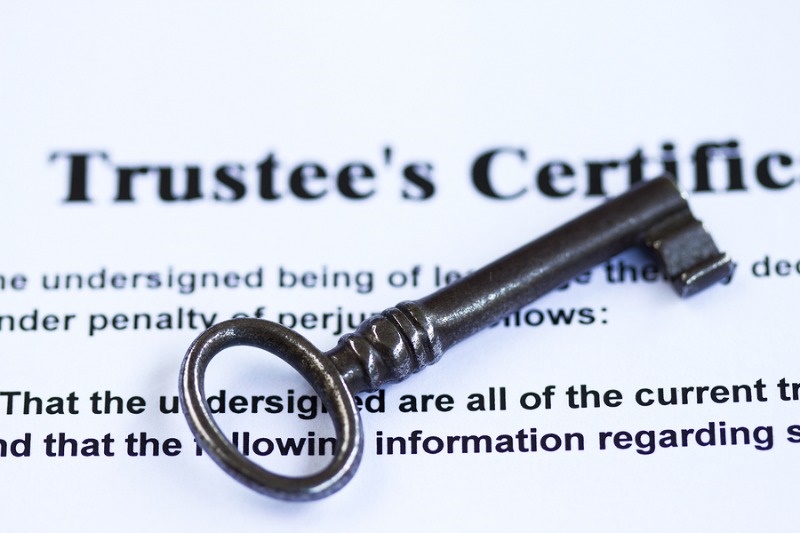Twenty-three years ago, Clark “CB” Bagby, Jr. assumed control of his father’s already successful demolition and grading company and grew it into one of the largest in the Southeast. Only one of his four children showed any promise or passion for the family business, the others content to enjoy its fruits. CB, the sole shareholder of the eponymously named CBDG, Inc., is acutely aware of his need for succession planning and is equally determined to make it as painless for himself as possible.
“I want them to know I’ve taken care of them, but I don’t want to be pestered about what I gave them, whether it’s enough, or where or how it’s invested. They can fight about that when I’m gone.” Among the myriad of considerations requiring your counsel, CB wants to relieve the trustee of any reporting obligations for any trusts created for his children’s benefit. What would be your advice?
As a threshold matter, you certainly can accomplish CB’s request. The duty to inform and report is a default provision codified in North Carolina’s version of the Uniform Trust Code (“UTC”) at N.C. Gen. Stat. §36C-8-813. It is limited to qualified beneficiaries and can ordinarily (i.e., absent special circumstances or specific requests for information) be satisfied by furnishing annual reports. Because it only applies when the terms of the trust are silent, however, it may be freely waived.
The twelve mandatory rules governing North Carolina trusts are found at N.C. Gen. Stat. §36C-1-105(b). Among them, the only compulsory duty imposed on trustees is “to act in good faith and in accordance with the terms and purposes of the trust and in the interests of the beneficiaries.” N.C. Gen. Stat. §36C-1-105(b)(2) (2015). A trustee’s inalienable duty of good faith, unmoored from any concomitant duty to apprise beneficiaries of the trust’s administration, creates a tension that may (rather foreseeably) erupt in conflict and spawn litigation.
Such was the case in Wilson v. Wilson, 203 N.C. App. 45, 690 S.E.2d 710 (2010). Lawrence A. Wilson, Jr. established two irrevocable trusts, one for each of his two children, and appointed his father to serve as trustee. The trust instruments waived any requirement that the trustee “prepare or file for approval any inventory, appraisal or regular or periodic accounts or reports with any court or beneficiary.” Id. at 46, 690 S.E. 2d at 711. Alleging the trustee effectively surrendered control of the trust assets to the settlor who, in turn, invested in his own highly speculative business ventures, the beneficiaries sued for breach of fiduciary duty.
Since North Carolina’s UTC does not require trustees to report to beneficiaries, the trial court entered a protective order precluding the children from receiving documents requested in discovery. On appeal, the Court of Appeals reviewed the UTC and reversed. In addition to the trustee’s mandatory duty of good faith, the appellate panel recognized N.C. Gen. Stat. §36C-1-105(b)(9) conferred upon courts the power “to take any action and exercise any jurisdiction as may be necessary in the interests of justice.” Noting that any notion of a trust without accountability is a contradiction in terms, the Court of Appeals concluded the duty of good faith would be completely eviscerated if beneficiaries had no means to hold the trustee to account. “[W]e hold the information sought by Plaintiffs was reasonably necessary to enforce their rights under the trust, and therefore could not legally be withheld, notwithstanding the terms of the trust instrument.” Wilson at 55, 690 S.E.2d at 716 (emphasis added).
Albeit sound, the Court of Appeal’s reasoning could have tread a simpler, more direct path. North Carolina Rules of Civil Procedure 26 and 34 govern discovery methods generally and the production of relevant documents in particular. Parties are permitted to request documents and information reasonably calculated to lead to the discovery of admissible evidence—even if the yield from those requests is inadmissible at trial. It seems axiomatic, then, that parties should be entitled to gain production of documents undeniably essential to their claims, irrespective of any waiver of the duty to inform and report. Stated differently, there is a clear distinction between requiring a trustee to prepare accountings and reports pursuant to the trust instrument and requiring the trustee to produce bank account statements or other relevant documents during litigation. Approaching the issue another way by analogy, it is hard to imagine our courts honoring a provision in CBDG’s grading contracts that waives its obligation to participate in discovery or produce relevant documentation.
In the five years since Wilson, the North Carolina legislature has not amended the UTC to impose any reporting requirements on trustees. The net effect of the dissonance between the UTC and Wilson is plain: while settlors may waive trustees’ obligation to inform and report to the beneficiaries, beneficiaries are nonetheless entitled to the production of relevant documents through discovery. A trustee’s recalcitrance to share information could stoke beneficiaries’ suspicions, and the current dichotomy between the UTC and Wilson leaves affected beneficiaries with no recourse but to file suit. This can, and likely will, increase litigation and unnecessarily burden the courts with potentially avoidable disputes.
CB’s situation provides a prime example. He may intend to distribute a controlling interest in CBDG to the one child involved in its daily operations. Perhaps he wants to distribute other property unevenly as well. Jealousy and strife among the offspring could transmute into distrust of the trustee. Absent some mechanism to assuage their fears about the trust’s administration, one or more of them could resort to litigation. CB’s best efforts to avoid discord may have precisely the opposite effect. Unless and until the UTC is amended to mandate some reporting requirements for trustees, CB would be wise to impose his own lest the trust corpus be consumed by litigation expenses.




